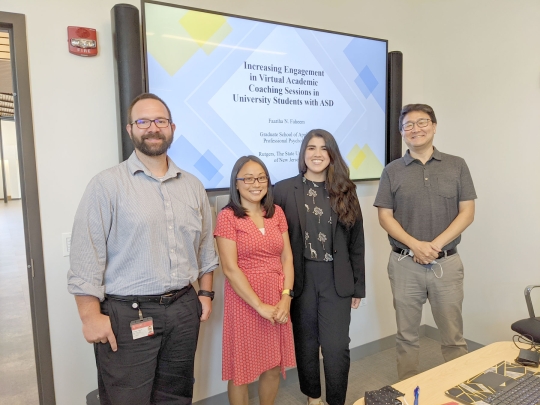
Scholarship/Aid
FINANCIAL AID
WHAT TYPES OF FINANCIAL AID ARE AVAILABLE?
There are three basic types of financial aid
- Student loans
- Grants/scholarships
- Work-study employment with loans
Students must repay all student loans. Grants and scholarships are awarded based on financial need and academic merit and do not need to be repaid. Grants and scholarships are limited resources and students are encouraged to research their options on-line or at their public library. See www.fastweb.com for the largest free scholarship search available on the Internet. As a participant in the Federal Work-study program, students are employed in part-time jobs both on and off-campus. What types of student loans are available?
Tuition Rates


The Rutgers Board of Governors approved the university's tuition and fee rates for the 2021–2022 academic year. Tuition and fees vary based on school affiliation, campus, and program. Download the tuition rates for your student level and campus below. To view the current Tuition and Fees rates, please visit Office of Student Accounting, Billing, and Cashiering website.
A majority of full-time graduate students receive financial aid. The level of support often is dependent upon the specific graduate program and your degree status. There are three forms of financial assistance available to graduate students: merit-based, need-based, and non-need based aid.
Financial Aid Information


Merit-Based Assistance
Merit-based assistance includes fellowships, assistantships, and scholarships. You are automatically considered for university-based fellowships, assistantships, and scholarships. The availability of merit-based assistance varies significantly by field of study.
View information on fellowships.
The university also provides special fellowship opportunities to promote the diversity of university programs.
Contact your graduate school for more information.
Many graduate students at the university receive fellowships funded by sources outside the university. You are encouraged to apply for externally funded fellowships and scholarships as early as possible. If you are new to the external funding process, GradFund offers an excellent introduction to external funding.
Assistance


Need-Based Assistance
Need-based assistance includes grants, loans, and employment. Most graduate students are eligible for some type of federal student assistance, usually in the form of a student loan. United States citizens and permanent residents are eligible to apply for need-based aid. Students who receive aid administered by the Rutgers Office of Financial Aid must report any employment offers, fellowships, scholarships, loans, gifts, and assistantships received subsequent to the original award made by the Office of Financial Aid.
Visit the Office of Financial Aid for more information.
Non-Need-Based Assistance
Non-need-based assistance includes private loans and other loan sources. There are many options.



